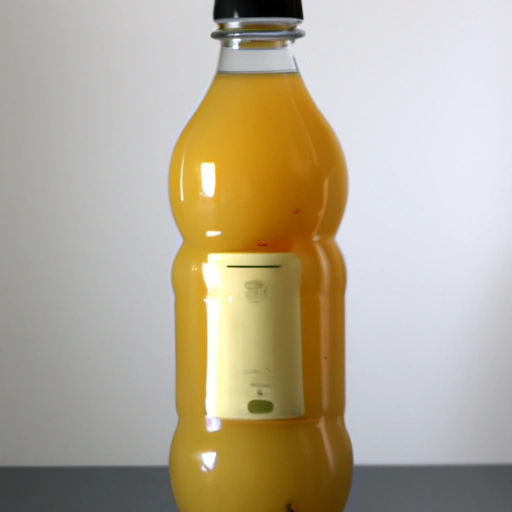Pear Juice
Description

Pear juice is a sweet, aromatic liquid extracted from pears, a popular fruit known for its juicy and buttery texture. It is a versatile ingredient that can be used in a variety of recipes to add natural sweetness and a subtle fruity flavor. Depending on whether it's made from concentrate or freshly squeezed, pear juice can vary in sweetness and intensity of flavor. It's often used as a base for beverages, sauces, and glazes or as a natural sweetener in various dishes.
Common uses
Pear juice is commonly used as a beverage on its own, mixed into cocktails, or blended into smoothies. It's also a popular choice for sweetening baked goods, creating fruit compotes, and glazing meats. In addition to its culinary uses, pear juice can be found in various health and wellness products, such as dietary supplements and natural remedies.
Nutritional value
Calories
A 240 ml (8 oz) serving of unsweetened pear juice contains approximately 120 calories.
Protein
Pear juice provides negligible amounts of protein, typically less than 1 gram per 240 ml (8 oz) serving.
Fat
Pear juice is virtually fat-free, with less than 0.5 grams per 240 ml (8 oz) serving.
Carbohydrates
The majority of calories in pear juice come from carbohydrates, with about 30 grams per 240 ml (8 oz) serving, primarily from natural sugars.
Vitamins
Pear juice is a good source of vitamin C, providing about 15% of the daily recommended intake per 240 ml (8 oz) serving.
Minerals
It also contains small amounts of minerals, such as potassium and magnesium.
Health benefits
Pear juice can be a part of a healthy diet, offering hydration and essential nutrients. It's a good source of antioxidants and vitamin C, which help support the immune system and can have anti-inflammatory properties. The juice is also hydrating and can aid in digestion due to its fiber content when the pulp is included.
Potential risks
Consuming large amounts of pear juice, particularly if sweetened or made from concentrate, can lead to excessive sugar intake. It's also low in fiber compared to whole pears, which can reduce its benefits for digestive health. Those with fructose intolerance should also consume pear juice with caution.
Common recipes
Pear juice can be used in a variety of recipes including pear-flavored sorbets, marinades for poultry or pork, and as a natural sweetener in salad dressings.
Cooking methods
While pear juice is often used fresh, it can also be reduced into a syrup for a more concentrated flavor or used as a poaching liquid for fruits and desserts.
Pairing with other ingredients
Pear juice pairs well with cinnamon, vanilla, ginger, and nutmeg, as well as with stronger flavors like blue cheese and arugula in savory dishes.
Summary
Pear juice is a delightful ingredient that can enhance a wide range of dishes with its sweet and subtle fruity flavor. Whether used in beverages, baked goods, or savory recipes, it brings nutritional benefits and historical richness to the culinary world. However, mindful consumption is key to enjoying its taste and health advantages without overindulging in sugars.